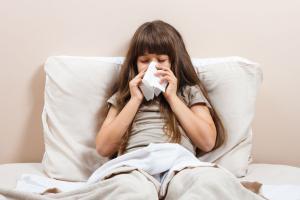Moreover, the rainy season brings relief from the scorching heat. But, at the same time, one is also at an increased risk of various health issues

This picture has been used for representational purpose
According to the World Health Organization (WHO), foodborne and waterborne diarrhea diseases are a problem for every country in the world but they can be prevented. Diarrhoea is the acute and most common symptom of foodborne illness, but other serious consequences are kidney and liver failure, brain and neural disorders, reactive arthritis, cancer and death. Moreover, the rainy season brings relief from the scorching heat. But, at the same time, one is also at an increased risk of various health issues. One may suffer from fatal diseases owing to the unhygienic conditions and not adhering to preventive measures. Dr Vikrant Shah, Internal medicine expert, Zen Multispecialty Hospital briefs you about foodborne diseases and foolproof tricks to keep them at bay.
ADVERTISEMENT
Facts about foodborne diseases
Speaking about foodborne diseases, it can be termed as an infection or irritation of the gastrointestinal (GI) tract caused by food or beverages which carry harmful bacteria, parasites, viruses, or chemicals. Did you know? Most foodborne illnesses are acute, which means that they may happen suddenly and also last for a short duration. Furthermore, most people may recover by themselves, without taking any treatment. In very few cases, foodborne illness can cause serious complications.
The symptoms: If you suffer from it, you may exhibit symptoms like vomiting, diarrhoea or bloody diarrhoea, abdominal pain, fever and chills.
The treatment: One of the most common ways of tackling foodborne illness can be replacing lost fluids and electrolytes to prevent dehydration. Medications prescribed by the doctor can help in getting rid of diarrhoea in adults. However, if you have bloody diarrhea then you must avoid using the medicines given to you for diarrhoea as this may be a sign of bacterial or parasitic infection. Your doctor will also ask you to take some antibiotics if the specific cause of the foodborne illness is diagnosed, and the treatment varies from person to person.
Preventive measures
You must refrigerate the food properly: Raw and cooked perishable foods should be refrigerated or frozen without delay. Not doing so, can invite bacteria and viruses. Now, how to store vegetarian and non-vegetarian food? These foods items should be stored separately. Moreover, there are certain foodstuffs like milk, meat and curries which can get spoilt immediately. So, make it a point to store them at the right temperature. Refrigerate cooked food as soon as it reaches the room temperature. Leftover food items have to be consumed at the earliest to prevent fungus growth.
Maintain good hand hygiene: Following good and proper hand hygiene is the need of the hour.
Firstly, you must wet your hands thoroughly and apply soap. Then, rub the back of your hands
and after that rub both your hands interlocking your fingers. After rubbing your finger and thumbs, rinse your hands properly. Furthermore, follow this healthy habit after handling food, visiting the washroom, changing diapers, or touching animals. This will prevent the transmission of bacteria and viruses. If you have any kind of skin abrasion or infection, then use clean disposable gloves. Also, to keep your cutting boards clean, you must wash them with soap and hot water.
Make sure that there is no cross-contamination: Cross-contamination can be defined as the physical movement or transfer of harmful bacteria from one person, object or place to another. Make sure that you place raw meat and eggs away from the rest of the food items in your refrigerator because the juices of raw meat can lead to cross-contamination. Opt for airtight containers to store food and those should be of good quality. Don't leave your food open for a longer period of time as it can attract insects and flies. Avoid using the same utensils- don’t serve the same plate which had raw food to serve fresh food. In case, you are eating outside, see to it that the plates, knives, and spoons you use are clean.
Eat fresh food: Eat properly cooked food at home. Bid adieu to the junk food. Going for fresh fruits and vegetable salads can improve your immunity. But, make sure that the fruits and vegetables are freshly cut. Include pepper, garlic, ginger, jeera powder, coriander and turmeric. Check vegetables before buying as they can be infested with dust and dirt. Also, remember that hydration is the key. So, drink a lot of water to stay healthy during the monsoon.
Catch up on all the latest Crime, National, International and Hatke news here. Also download the new mid-day Android and iOS apps to get latest updates
The content is not intended to be a substitute for professional medical advice, diagnosis, or treatment. Always seek the advice of your physician or other qualified health providers with any questions you may have regarding a medical condition.
 Subscribe today by clicking the link and stay updated with the latest news!" Click here!
Subscribe today by clicking the link and stay updated with the latest news!" Click here!






